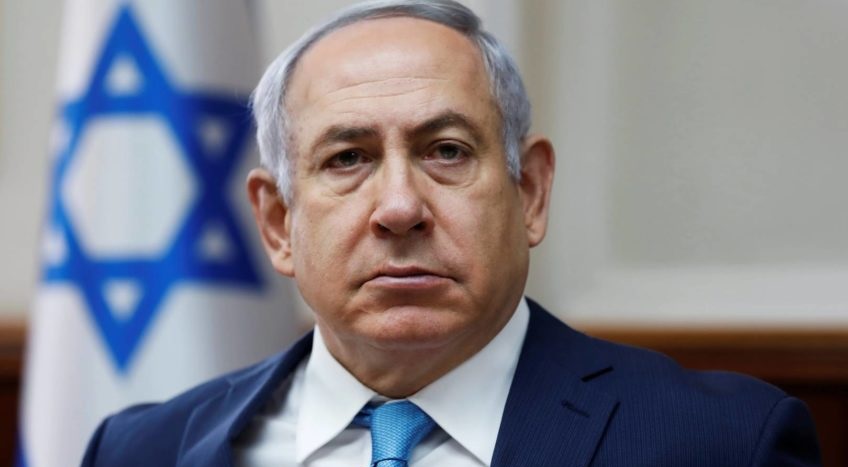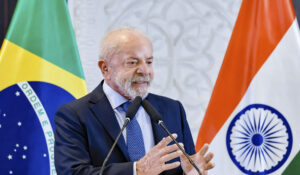
Posted 09/04/2024 10:48 | Edited 09/04/2024 12:22
Pressure on the government of Israeli Prime Minister Benjamin Netanyahu has been growing in recent days following the demonstrations and general strike that shook the country between last Sunday (1st) and Monday (2).
Internally, opposition leaders have been cornering the far-right coalition into agreeing to a ceasefire in the Gaza Strip, which would result in the exchange of Hamas hostages, while the international community is putting pressure on Zionist leaders through the International Criminal Court (ICC) and the cancellation of arms shipments to Tel Aviv.
On Wednesday (4), the main leader of the Israeli opposition, Yair Lapid, said in a session at the Knesset, the country’s legislature, that Prime Minister Netanyahu’s government “prefers war” and that as long as it exists the conflict in the region will remain.
“What Netanyahu’s office is saying is that we are in a new version of [ocupação israelense do] Lebanon. It took us 18 years to leave Lebanon and they are offering us the same thing: years of war, years of economic crisis, years of destruction, fear and violence. This is what the government is offering us. A war that will go on and on. An eternal war that will never have an end date,” says Lapid.
“Israel needs to end this war. Make a deal for the hostages and close the deal. Ending the war is in Israel’s interest, in our interest, in its economic interest, in its political interest,” he continued.
Lapid outlined what he believes is the opposition’s main post-war plan and said Netanyahu lacks the capacity to carry it out.
“We have big tasks ahead of us. To establish a regional coalition with the Saudis and the Americans against the Iranian threat. To get the economy back on track before it collapses. To rebuild the military in the face of the threats we face,” says Lapid.
“The current government doesn’t know how to do any of these things. That’s why it prefers war. Because it frees it from having to face challenges. We know how to face these challenges. We’ve done it before, we’ll do it again, better. It’s time to change the government and end the war.”
Lapid’s statement comes days after the Israeli military announced it had found six bodies of hostages in Hamas tunnels in the Gaza Strip. The Islamist group later said in a statement that “Netanyahu’s insistence on releasing the prisoners through military pressure instead of concluding a deal means they will return to their relatives in coffins.”
In the following days, around 500,000 protesters took to the streets of Israel to protest against the far-right coalition and press for a ceasefire and hostage exchange agreement. On Monday (2), a general strike paralyzed a series of services in the country and mobilized Netanyahu’s political group, which went public with an apology.
ICC to decide on warrant against Netanyahu, UK cancels arms shipment
The British newspaper The Guardian published this Tuesday (3) that the International Criminal Court (ICC) should decide in the next few days whether to issue an arrest warrant against Prime Minister Benjamin Netanyahu and Yoav Gallant, Israeli Defense Minister, for committing war crimes and crimes against humanity in the conflict in Gaza.
The indictment was filed in March, when ICC Chief Prosecutor Karim Khan said Netanyahu and Gallant were responsible for “deliberately starving civilians to death,” “intentional homicide,” “extermination and/or murder” and “persecution” of Palestinians in the Gaza Strip since Oct. 8, 2023, the date the country began retaliating against Hamas attacks the day before.
If the court decides to issue the warrant, Netanyahu and Gallant could have their travel destinations limited to countries that are not signatories to the Rome Statute, as countries that have ratified the agreement must comply with the ICC’s orders.
On Monday (2), the UK Foreign Minister, David Lammy, announced that he will suspend 30 of the 350 arms export licenses to Israel. The justification for the suspension was the “clear risk” that they could be used in violations of international humanitarian law.
“In a conflict like this, the government has a legal duty to review export licences,” Lammy said. The British government’s decision, however, does not include parts for F-35 fighter jets, a decision criticised by human rights groups.
Source: vermelho.org.br

